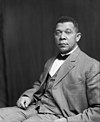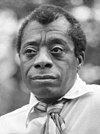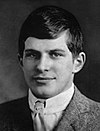Welcome! Check out today's deaths, recent deaths, or our deaths stats.
Feeling experimental? Head on over to our newest (and darkest) feature: Next-2-Die™ predictions
 W. E. B. Du Bois
W. E. B. Du Bois


American sociologist, historian, socialist, activist, and writer.
Born February 23rd, 1868 in Great Barrington. [ref]
Died August 27th, 1963 at 95 years old in Accra. [ref]
William Edward Burghardt Du Bois (1868-1963), a leading and pioneering civil rights activist and scholar, died on the 27th August 1963 at the age of 95. Du Bois was born in Great Barrington, Massachusetts on 23rd February 1868, and grew to become one of the most influential and influential figures in the civil rights front. Du Bois attended Fisk University in Nashville, and received his undergraduate degree from Harvard in 1890. He later earned his Doctor of Philosophy from Harvard University in 1895, becoming the first African American to earn a doctorate from Harvard. Du Bois’s impactful career included his co-founding of the Niagara Movement, which in 1909 became the National Association for the Advancement of Colored People (NAACP). Du Bois was also the Publisher and Editor for The Crisis, the NAACP′s official magazine. Other accomplishments included founding the Pan African Congress in 1919, an organization that sought to empower black people around the world to speak out for social and political rights, and writing The Souls of Black Folk (1903), which remains a powerful analysis of US racial issues. Du Bois authored innumerable other books dedicated to civil rights and social progress, including Darkwater (1920) and his influential autobiography Dusk of Dawn (1940). His remarkable research and writing made great strides in advancing civil rights, and set the stage for the modern civil rights movement. He died on 27 August 1963, leaving behind a legendary legacy in the US civil rights struggle.
You might also be interested in...





Death is the destination we all share. No one has ever escaped it. And that is as it should be because death is very likely the single best invention of life. It is life’s change agent, it clears out the old to make way for the new. Steve Jobs